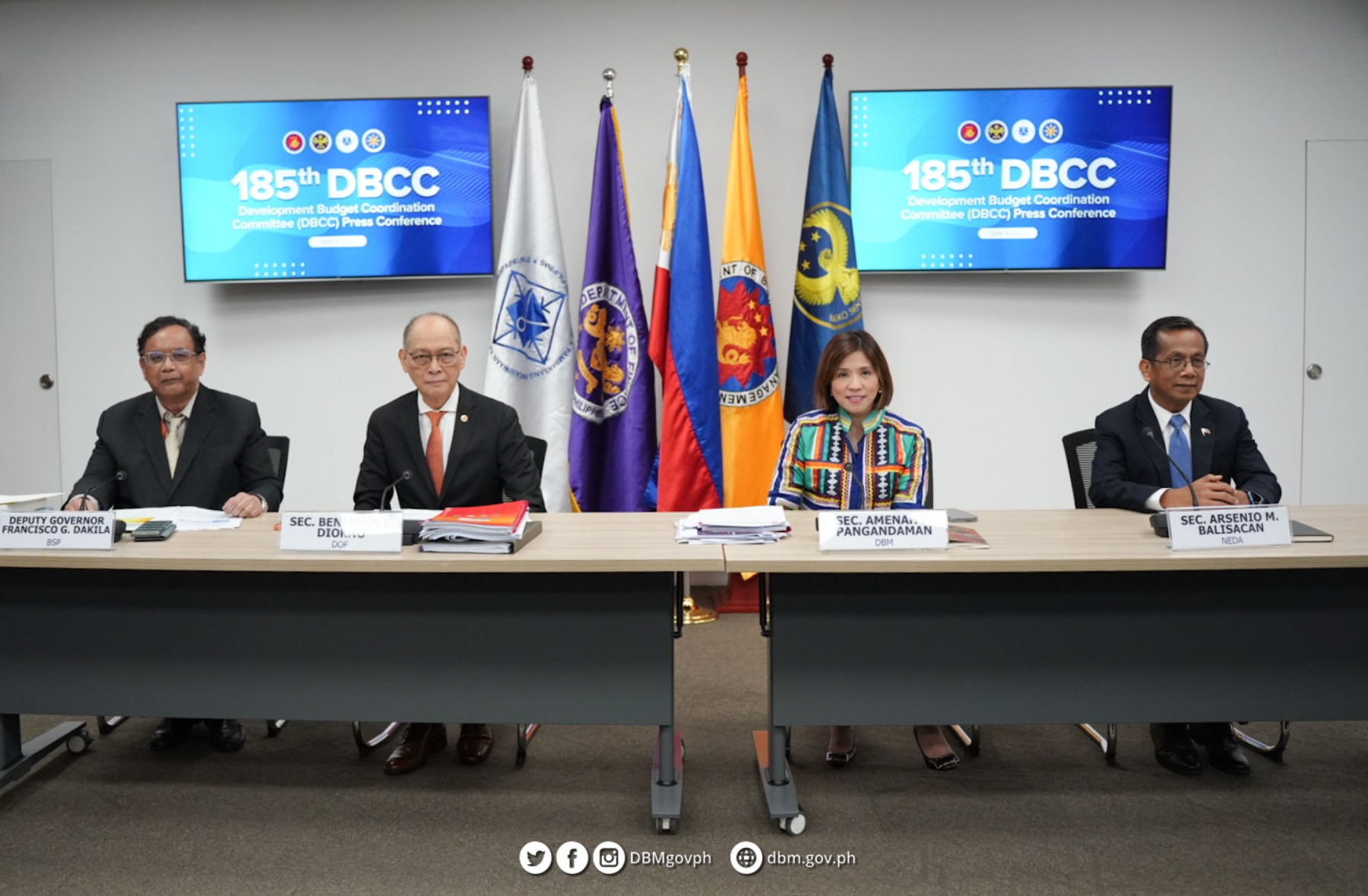The BGA Philippines Team, led by Managing Director Victor Andres Manhit, wrote an update to clients on a new macroeconomic forecast that accounts for the country’s better-than-expected performance.
Context
- The Philippine Development Budget Coordination Committee (DBCC) recently issued a joint statement containing its latest review of the country’s medium-term macroeconomic forecast and 2023-2028 fiscal program. The revised outlook takes into account the Philippines’ better-than-expected economic performance in the first quarter of 2023, increased government revenue and enhanced efforts to weather a range of risks as the country looks to achieve upper middle-income status by 2025.
- Separately, the government is planning a new budget for the 2024 fiscal year that will exceed this year’s budget by 9.5 percent. Consistent with the current budget’s priorities, new expenditures will seek to advance the country’s socioeconomic and infrastructure development.
Significance
- The DBCC maintained its growth projections at 6-7 percent for 2023 and 6.5-8 percent from 2024-2028 in response to the Philippines’ 6.4 percent economic growth in the first quarter of 2023. The outlook considers domestic and external risks such as El Nino and other natural disasters, global trade tensions and value chain disruptions.
- The DBCC lowered the average inflation rate estimate for 2023 to 5-6 percent from 5-7 percent, partly due to the continued inflation slowdown during the first four months of the year. The inflation rate is expected to return to the target range of 2-4 percent from 2024-2028.
- During the first four months of 2023, government revenue amounted to PHP 1.3 trillion ($23.3 billion) — 11.2 percent greater than the same period in 2022 — due to improved tax administration. It is projected to reach PHP 3.7 trillion ($66.2 billion) by the end of 2023 and PHP 6.6 trillion ($118 billion) in 2028 with the help of revenue-generating measures. Disbursements are expected to remain above 20 percent of the gross domestic product (GDP) from 2023-2028 and will prioritize infrastructure and socioeconomic development. The deficit is expected to gradually return to pre-pandemic levels of 3 percent of GDP by 2028 from this year’s 6.1 percent.
Implications
- The Philippines plans to implement the following near- and medium-term strategies to withstand these risks and achieve upper middle-income status in the next two years: ensure timely and adequate imports; develop preemptive measures to address El Nino impacts on weather patterns; strengthen biosecurity; enhance agricultural productivity; and push for legislative reforms, such as the Livestock, Poultry and Dairy Competitiveness and Development Act.
- The government’s national budget proposal for the 2024 fiscal year amounts to PHP 5.8 trillion ($103.7 billion). The budget will continue to prioritize expenditures that promote social and economic transformation through infrastructure development, food security, digital transformation and human capital development.
We will continue to keep you updated on developments in the Philippines as they occur. If you have any questions or comments, please contact BGA Philippines Managing Director Victor Andres Manhit at vmanhit@bowergroupasia.com.
Best regards,
BGA Philippines Team

Managing Director
Dindo is recognized as one of Manila’s most well-connected and savvy advisors on developments in government and business in the Philippines. Concurrent to his role as managing director for BGA’s operations in the Philippines, he is also the founder and managing director of the Stratbase Group and president of its policy think tank, the Albert del Rosario Institute for Strategic and International Studies. Since 1991, Dindo has served as a member of the faculty and is the former chair of the Political Science Department and a senior fellow of the La Salle Institute of Governance at the De La Salle ...
Read More


























